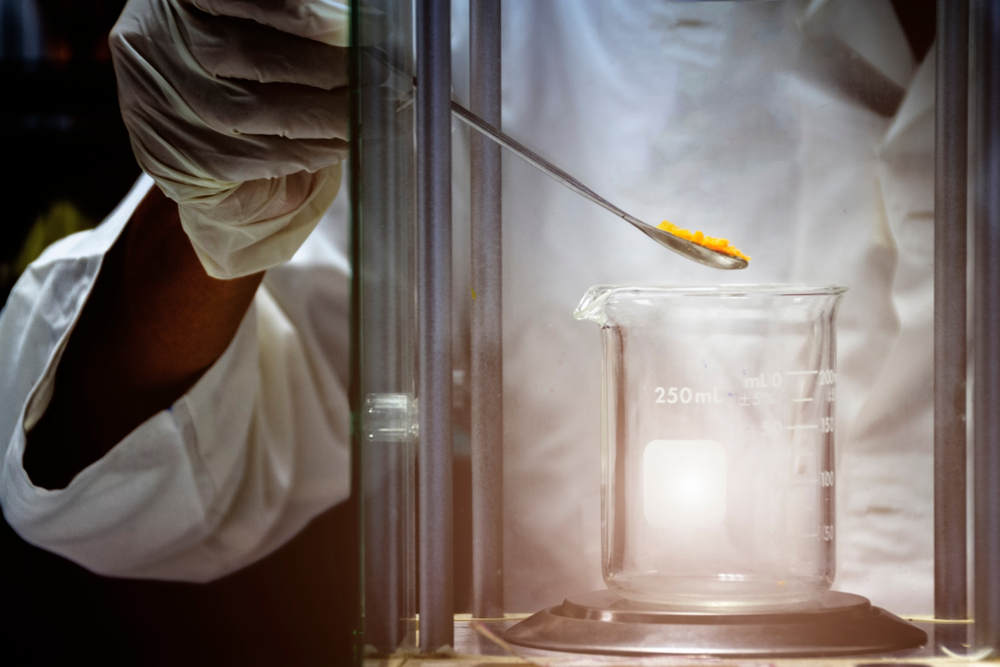
As the nutraceuticals market continues to grow, the demand for high-quality products becomes more important than ever.
It’s become increasingly important for nutraceutical companies to implement and uphold strict quality control measures.
In this post, we’ll explore the role of quality control in nutraceutical production – and give you some tips on how you can make sure your products meet these rigorous (but ever-important) standards.
The Importance Of Quality Control In Nutraceutical Production
With so many companies vying for a piece of the nutraceutical marketplace, it’s more important than ever to make sure your products are up to snuff. Not only does prioritizing quality help you stay competitive, but it’s important for three other big reasons, as we’ll detail below.
Ensuring Product Efficacy
The most obvious reason for implementing good quality control in nutraceuticals is simple – to make sure it actually works. Just think about it – if a consumer is spending money on a supplement, they want to know that it’s actually going to do what it’s supposed to do. And if a product just doesn’t work, people aren’t going to keep buying it.
Rigorous testing procedures can help producers make sure they’re verifying the identity and quantity of ingredients, as well as testing for contamination and ensuring compliance with good manufacturing processes.
Regulatory Compliance
Another big reason to consider investing in quality control is to make sure you’re in line with the letter of the law.
The U.S. Food and Drug Administration (FDA) has established current good manufacturing practices (cGMPs) that all nutraceutical manufacturers must follow. These practices ensure that everything from manufacturing to packaging to holding dietary ingredients and supplements is done in a way that won’t adulterate or misbrand the product.
Despite cGMPs being in place for 15 years, violations still occur, with the most common ones being using illegal ingredients, making disease claims, containing heavy metals, mislabelling, and having inappropriate production conditions. These violations cause the FDA to send thousands of observations and warning letters each year. Make sure you aren’t on the receiving end of one of these letters by investing in good quality control!
It’s also important to note that nutraceuticals are recognized as dietary supplements by the FDA, so they have specific regulations that differ from those of standard food. This means manufacturers must be extra diligent in ensuring their products meet these regulations and are of high quality.

Consumer Safety
It’s not just about making sure that consumers are satisfied with your products – but also making sure they’re safe.
Sadly, the increasing sales of nutraceuticals and the absence of stringent regulations in the nutraceutical industry leave the door open for dishonest producers, making it easier for supplements containing harmful substances to enter the market.
And that’s not all. Studies have found a greater prevalence of safety and quality issues, such as contamination by pesticides and mycotoxins, in nutraceuticals than ever before.
This is where quality control comes in. By implementing strict testing procedures and thorough monitoring schedules, manufacturers can ensure that their products are safe and of high quality. They can also invest in third-party product certification to demonstrate to consumers that their supplements meet high-quality standards.
Key Components Of Nutraceutical Quality Control
Now that you know the benefits of nutraceutical quality control, what exactly goes into it? Here are three key components.
Raw Material Testing
First and foremost, let’s talk about raw material testing. This is where it all begins. The ingredients that go into your supplements must be thoroughly tested for pathogens and quality indicators before they even enter the production process.
Contamination (even simply contamination from the soil) and other environmental factors can cause wasted time, product, and profits. By catching potential problems early on, you can avoid all of these setbacks.
But it’s not just about the ingredients. The supplement formula itself is crucial to ensure that consumers get the right dosage and efficacy. Manufacturers must follow strict guidelines to measure the proper level of each ingredient accurately. A slight miscalculation can lead to ineffective products or even harm consumers.

In-Process Monitoring
In-process monitoring plays a huge role in making sure the manufacturing process meets quality standards.
Good Manufacturing Processes (GMP) is one such standard set forth by the World Health Organization that manufacturers must follow. This includes maintaining a clean work environment, preventing cross-contamination, and adhering to clearly defined processes. The third-party evaluation ensures that manufacturing facilities operate at the highest level of safety and quality.
Final Product Analysis
Manufacturers must make sure that their supplements are pure and effective before they’re sent out the door – they do this by conducting both required and non-required tests for purity, efficacy, and allergen levels. Achieving the USP Verification Mark, for example, proves that supplements are safe, comply with the label, and do not contain harmful levels of contaminants.
Ensuring Ingredient Purity
Another key reason for investing in quality control as a nutraceutical producer is to make sure ingredients are pure and effective. Here’s what to keep an eye out for.
Screening For Contaminants
We all know that nutraceuticals are dietary supplements that are composed of natural materials such as herbs and botanicals. However, just because they’re natural doesn’t mean they are completely free from contamination risks.
That’s where quality control comes into play. Quality control makes sure that the ingredients used in nutraceutical production are pure and free from any contaminants. This involves screening for microorganisms such as E. coli, Salmonella, and S. aureus that can easily appear during the production, harvest, transportation, storage, or manufacturing process.
Other major contamination sources that you’ll screen for in this process include trace metals, pesticides, mycotoxins, and even radioactive contamination. These contaminants can be harmful to the end-user, so it’s important that quality control is put in place to make sure that the products are of high quality and safe for consumption.
Verification Of Active Ingredients
In addition to screening for contaminants, quality control teams are also responsible for verifying the active ingredients in each nutraceutical product. This involves testing the potency and purity of key components to ensure that they meet the appropriate specifications.
By verifying the active ingredients, manufacturers can guarantee that their products are both safe and effective for consumers.
Quality Assurance And GMP
Finally, let’s talk about the role that quality assurance and GMP (Good Manufacturing Practices) play in this process.
GMP Guidelines In Nutraceutical Production
GMP guidelines are a set of regulations that govern the manufacturing of nutraceuticals and other products. These guidelines help ensure that the final product is of the highest quality and safe for consumption.
Here are some of the key aspects of GMP guidelines that nutraceutical manufacturers must adhere to:
- Facilities and equipment must be properly designed and maintained to prevent contamination.
- Raw materials and ingredients must be thoroughly tested and verified for potency, purity, and quality.
- Production processes must be documented and standardized to ensure consistency.
- Products must be tested at various stages of production to ensure quality and purity.
- Labels and packaging must accurately reflect the contents and dosage of the product.
Role Of Quality Assurance Teams
Without adherence to GMP guidelines, nutraceutical manufacturers risk producing products that are unsafe or ineffective.
That’s where quality assurance teams come in – these dedicated professionals ensure that GMP guidelines are being followed at every stage of the production process, from raw materials to finished products.
These people work closely with manufacturing teams to identify and address potential issues before they can impact product quality.
By providing critical oversight and ensuring that GMP guidelines are being followed, quality assurance teams help ensure that consumers can actually trust the products they buy.

Future Trends In Nutraceutical Quality Control
When it comes to nutraceutical manufacturing, quality control should always be a top priority. In the future, we can expect even stricter regulations and standards to ensure the safety and effectiveness of these products. That’s why SMP Nutra is committed to staying ahead of the curve when it comes to quality control.
Our state-of-the-art facilities and industrial HVAC systems ensure that our products are made in a clean and controlled environment. We also have three dedicated laboratories for quality testing, so you can rest assured that every batch of our products meets cGMP standards.
But we don’t just rely on our equipment and processes. We also have strong relationships with our raw ingredient suppliers, allowing us to source the highest quality ingredients for our customers. With a huge selection of in-stock products available for lower MOQ and competitive prices, we make it easy for our clients to create their own successful nutraceutical businesses.
Manufacture Your Supplements With SMP Nutra
At SMP Nutra, we pride ourselves on being more than just a manufacturer. We treat our clients like our partners, which is why we invested heavily in being able to scale and support your business for long-term success.
So if you’re looking for a nutraceutical manufacturing partner that prioritizes quality control and client relationships, check out our stock products. Contact us today for more information.

